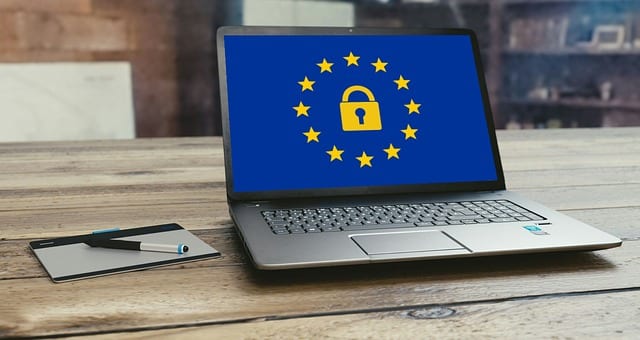Using VPN to Get GDPR Protection Outside The EU
You must have received several emails over the last few weeks from different websites, which read that they are updating their privacy policies. Companies keep updating their privacy policies every now and then, but this time, every major company is doing it at the same time. This is because of the General Data Protection Regulation, also known as GDPR. Over the last few months, the world has been talking about GDPR, a new rule in the European Union law that’s all set to come into force on the 25th of May, 2018.

Using VPN to Get GDPR Protection Outside The EU
New rules
Every website dealing with customer data has been scrambling to update their privacy policies to comply with the rule, or else stop doing business in EU. The GDPR has been formed to protect the data of people in the EU, and given how large the continent is, no company wants to lose out on the huge number of customers in Europe.
The GDPR has scared a lot of companies, leading them to update their privacy policies immediately. But despite all the noise that the regulation has generated in the last few weeks, many people still aren’t what it is all about. There are various questions in people’s minds, such as how the new regulation will affect companies and how their future operations will be affected.
Is a New Sheriff in Town? Doubt It!
The regulation essentially means companies will now have to ask for consent before collecting data and also reveal what the data is being used for. But one big downside of the regulation is that it is meant for the people in EU. Therefore, companies will not bother seeking consent from people outside the EU.
Since GDPR is an EU law, it concerns only EU citizens. Companies like Facebook have said that they plan to roll out similar data protections for people in other countries, but those will probably be unregulated and nowhere near as powerful as the GDPR.
The lack of data protection laws is concerning, especially after the Cambridge Analytica controversy surrounding Facebook. It was discovered that the political firm used personal information collected from over 50 million Facebook users without consent to influence the 2016 US presidential campaign.
In April 2018, Facebook CEO Mark Zuckerberg testified before the Senate and faced questions related to drugs sales on Facebook, the Cambridge Analytica controversy, self-regulation, and censorship. Despite this, there was no assurance from Zuckerberg that Facebook would minimize data collection from users.
Facebook has been forced to comply with the new GDPR regulations, but it has been criticized for rushing the questionnaire, forcing people to hit the “agree” button, and preventing them from going back and making changes. Nevertheless, with the new regulations in place, it is obvious that people in Europe will have greater online protection than the rest of the world.
Even if you are an EU citizen but live in another country, you will not get the same protection because a website can determine your geo-location from your IP address, which is based on the location of the server or network of your device.
However, it’s possible to get the same level of protection even outside the EU, simply by changing your IP address. The easiest way to do this is by using a VPN.
A VPN is the Answer for so Many
A Virtual Private Network is an application that encrypts all your online data by passing it through a secure server. All data that passes between your device and the secure server is protected from outsiders. Therefore, your data remains safe from hackers, cybercriminals, security agencies, even your internet service provider. Although protection and privacy are the main functions of a VPN, there are other uses too.
For instance, you can take advantage of the GDPR by hiding your original IP address and choosing server located in the EU. When websites see your EU IP address, they will think you are within Europe and offer you greater freedom to choose how your data is collected and used. Although it may sound complicated, it actually isn’t.
There are several outstanding paid VPNs to choose from, and the rates are as low as $3 a month. By using one such VPN service, users can easily choose a server located in the EU and mask their original IP addresses. A VPN can also be used to unblock geo-restricted content, bypass Internet censorship, and basically hide all Internet activities from outsiders.
However, when choosing a VPN it is best to pick a reputed paid service. Take a look at our in-depth review of VPNs that provide the highest level of encryption and offers the best data security.






Ive tried a lot of VPN services when travelling. Most of them have very low speeds and lot of disconnections maybe because of lot users connected, Ive now using euvpnprotect and Im very satisfied with the connection speed and reliability.